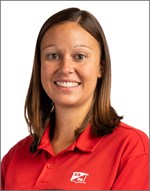Performance Preview For 2021 On-Farm & Demonstration Trials; HAY and HiDF Summaries Now Available
BY Dairyland Seed Agronomy Team
2021 AGRONOMY REPORT PREVIEW
Dairyland Seed is committed to being your crop production partner. Our goal is to be one of your trusted advisors especially when it comes to managing your grain and forage needs.
In pursuit of this, we conduct Product and Agronomy Research (PAR) trials across our marketing area. Key sites include Wabash, IN; Mt. Hope, WI; Decker, MI and St. John, MI. We also conducted on-farm trials and demonstrations.
As in previous years, we will be reporting our findings in several ways:
- Our weekly agronomy newsletters;
- Presentations at winter grower meetings;
- Trade shows;
- Dairyland Seed Café Zoom meetings; and
- The printed report book. This book is scheduled to be available in mid to late December. See your Dealer or DSM for a copy or visit us at a function this winter and we will be happy to discuss our observations.
We had close to two dozen trials or demonstrations. Below is a list of some of the key projects:
- Corn Harvest Dates and Yield Impact
- Corn and Soybean Replant Decisions (the final year of a three-year study)
- Revisiting Starter Use on Corn (two-year trial)
- Fungicide Use for Grain Corn and Silage Corn (several locations and small studies)
- Investigating Early planting Dates on Corn and Soybean (two separate trials)
- Soybean population (multiple trials)
- Strategies for Early Soybean Harvest (two-year trial)
- Early Vegetative Mow and Roll of Soybeans to Increase Yield
- Soybean and AMS application
- Soybean and Sulfur Application
- Seed Treatment for Soybean
- And a few others.
DAIRYLAND SEED’S HAY AND HIDF FORAGE TESTING PROGRAMS
Dairyland Seed can trace its roots directly back to selling high-quality forages to farmers, researching novel seed technologies, and extensively testing hybrids to ensure the best products are available for your acres and your animals. We have the strongest lineup we’ve ever had anchored by continued advantages from our on-farm forage testing programs that brings robust results right back to the farm gate. Our 2021-2022 marketing theme says it best, time to let our performance do the talking – show us the yield!
The Hybrid Alfalfa Yield (HAY) program tests Dairyland Seed Hybrid Alfalfa products side-by-side against competitive alfalfa products under real-world conditions and scenarios by collaborating with growers to capture performance data that reflects realistic differences in growing conditions, cutting schedules, soil demographics, weather, and wheel traffic. This type of variability shows true field performance expectations, especially as the number of public testing sites continues to decrease. This on-farm strip trial research program is the only one of its kind within the seed industry, producing thousands of valuable data points since it began in 2000, and allowing customers to purchase Dairyland Seed Hybrid Alfalfa with confidence. The annual data summaries for all of the lead HybriForce products are available now through your Dairyland Seed Rep but you can check out the continued advantage HybriForce-4400 has over the competition here:
https://www.dairylandseed.com/top-yields/alfalfa
The Highly Digestible Forage (HiDF) corn silage plot program focuses on elite tonnage hybrids that produce excellent quality forage for both dairy and beef farmers. We started out identifying the key characteristics of what made certain hybrids perform better in the livestock industry and tested this unique concept with plot cooperators across the Dairyland Seed territory to gather more information, especially at the local level. As the success of the testing program grew, so did the demand for products with silage-specific attributes that deliver better starch and fiber digestibility without sacrificing tonnage or agronomic performance. HiDF hybrids are designed and screened with these priorities in mind then taken out to the field to analyze. The yield and quality data captured at harvest is presented in several breakouts specific to your region and desired relative maturity through your Dairyland Seed Rep but you can check out the full silage summary here:
https://www.dairylandseed.com/top-yields/silage
 |
 |
 |
 |
 |
| Brian Weller Western Region 507.456.3034 |
Dan Ritter Central Region 219.863.0583 |
Branden Furseth Northern Region 608.513.4265 |
Mark Gibson Eastern Region 260.330.8968 |
Amanda Goffnett Eastern Region 989.400.3793 |
